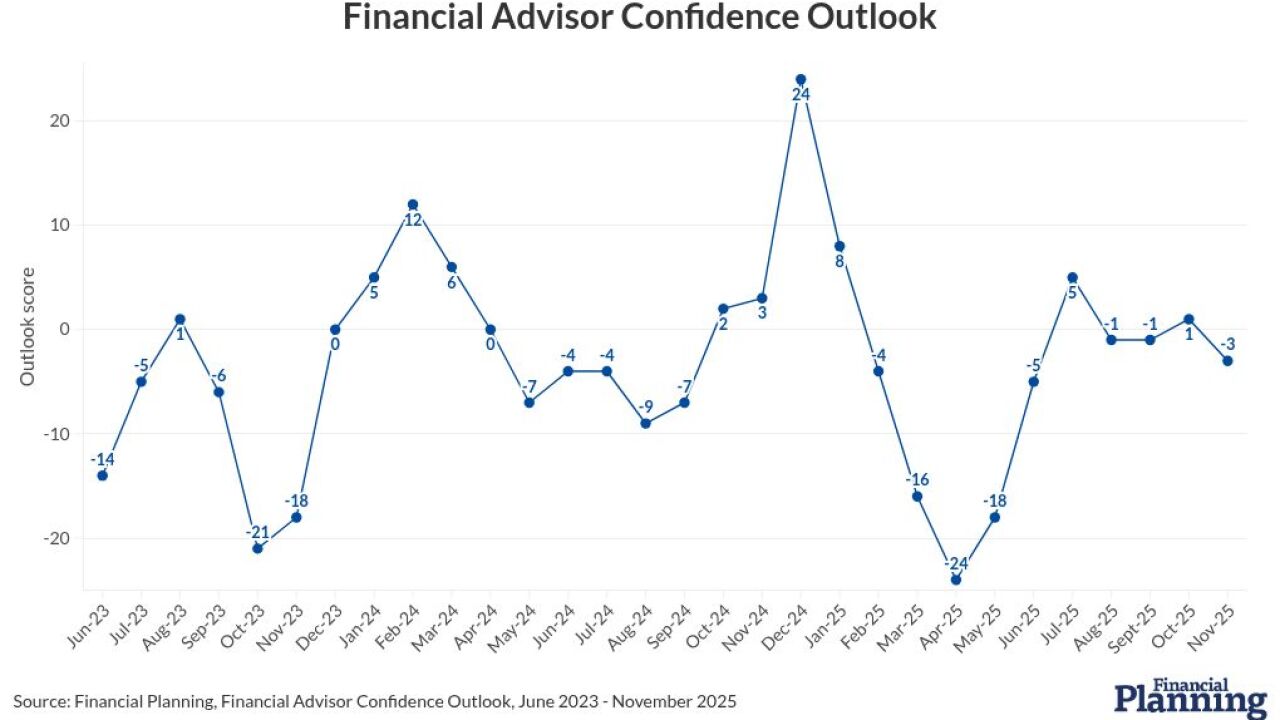SAN DIEGO - With a number of major carriers exiting, 2012 has been a year of flux for the annuity industry, said Catherine J. Weatherford, president and chief executive of the Insured Retirement Institute.
Smaller players have taken on additional business as the exodus at the top continues, Weatherford said Sunday ahead of the IRI 2012 Annual Meeting in San Diego this week.
Some carriers have launched "strategic" new annuity products that either carry lower fees, were created solely for tax deferral purposes, or are being placed within retirement portfolios.
"The industry has been in an interesting transformation," she said. "The financial crisis hit banks rapidly, but for the life insurance industry, it took a while for the issues from the crisis to develop."
Over the past year, four insurance companies stopped offering annuity products: Canadian carriers John Hancock Life Insurance Co. and Sun Life, Dutch-based ING Groep NV, and U.S. carrier, Hartford Financial Services Group Inc. Weatherford said the decisions were motivated in part by the increasing demands on capital, particularly from the European and Canadian regulators.
"The exiting was about how to best deploy capital," she said. "But this industry is very well-capitalized. In fact, it's more highly-capitalized than ever, and insurers have strong, good liquidity."
Now, rising carriers such as Forethought Financial Group in Houston, which in April struck a deal with Hartford to buy its individual annuities distribution platform, Sammons Annuity Group in West Des Moines, Iowa, Jefferson National in Louisville, Ken., and smaller players like Symetra Financial in Bellevue, Wash., are taking advantage of the seismic change in the marketplace and are growing their business, in part, by strategically launching new products or positioning them within retirement portfolios.
"There are headwinds caused by the low interest-rate environment, which makes it tougher to deliver these solutions and make some money," Weatherford said.
Still, sales are up for the annuity industry, she said. Last week, the group announced that industry-wide annuity sales for the second quarter increased 4.1% to nearly $55.3 billion, from the first quarter, based on data reported by Morningstar Inc. and Beacon Research. Variable annuity sales increased 5.4%, to nearly $38.2 billion.
Weatherford credits the rise to customers' realization that they needed to find additional streams of guaranteed income to protect their retirement savings, after many saw the values of their portfolios drop drastically during the recession.
"Women have a special risk in that they generally live longer, and they've got to make sure their money exceeds their expenses," she said. "Those who have put annuities in their program have greater security and greater confidence."
The rise in sales is also due in part to more acceptance of the products by financial advisors, Weatherford said. In April, IRI and AllianceBernstein released a survey of financial advisors, in which 50% of respondents said they started recommending variable annuities more because their clients are demanding "guaranteed investments." Fifty-seven percent of respondents said they increased their use of the products because the "designs have become more attractive."
Still, Weatherford hopes that more planners will incorporate annuity products into their practice.
"The challenge for financial advisors is that annuities are sophisticated products," she said. "They have to educate themselves, spend time analyzing the products, and they must have deep, meaningful conversations with their clients because it is not a solution for everyone."
Indeed, many wealthy clients may not need a guaranteed "paycheck for life," while others should not tie up their savings in an annuity product because they don't have enough liquidity to cover emergencies or unexpected expenses, Weatherford said. Then there are clients who may have different tastes or preferences and want to keep their money in alternative instruments, such as gold.
As for IRI's concerns on Capitol Hill in Washington, Weatherford said the most critical task is encouraging Congress not to reduce or eliminate the tax deferral advantages of certain annuity products and other instruments, as lawmakers strive to find other ways to cut spending and increase revenues in their quest to prevent falling off the "fiscal cliff" with the pending triggers.
"We are very concerned about protecting tax deferral saving vehicles that Americans use to save for retirement," she said. "We don't want Congress to take away those incentives. These are deferrals that can go back into the coffers when people start using their income."
"So ultimately, taking away those incentives would not have an effect on deficit reduction," Weatherford said.
The trade group also believes that it and other groups are "closer than they ever were before" in getting Congress to enact legislation creating a national insurance licensure program for advisors, she said.





